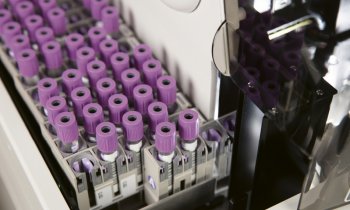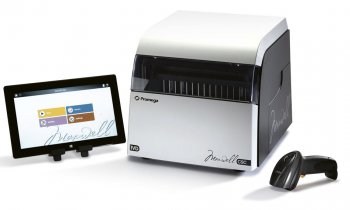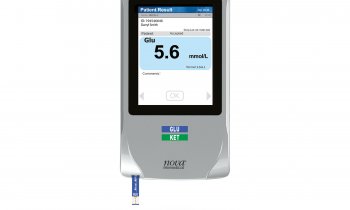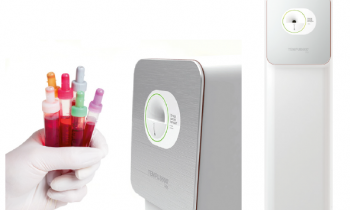Image source: Adobe Stock/Елена Бутусова
News • Beyond polygenic risk scores
Adding blood biomarkers to genomics to better predict common disease risk
Being to identify people at high risk of chronic disease means that they can be targeted with prevention measures before they become sick.
Polygenic risk scores, where genomic information alone is used to assess the risk of developing diseases, have been receiving a lot of attention recently, but research presented at the annual conference of the European Society of Human Genetics suggests that combining blood biomarkers with genomic information gives more accurate, cost-effective results.
Dr Jeffrey Barrett, Chief Scientific Officer, Nightingale Health, Helsinki, Finland, described how his team measured over 200 biomarkers in blood samples from 300,000 participants in the UK Biobank, and 200,000 in the Estonian biobank. “This is the biggest dataset of its kind that has ever been collected,” he says. The researchers used machine learning to build predictive models for individuals’ future risks of nine common diseases, based on their genetic information and the biomarkers that they measured. The diseases studied were ischaemic heart disease, stroke, lung cancer, diabetes, chronic obstructive pulmonary disease, Alzheimer’s and other dementias, depression, liver disease, and colon cancer. These are the top sources of “disability adjusted life years” in the European region, according to the WHO, and thus the biggest sources of suffering and health care costs, and the most important in terms of prevention.
This suggests that these biomarker scores are not a narrow research finding, and could be used effectively in general practice
Jeffrey Barrett
“We found that in all the diseases, both genetics and biomarkers could provide useful information about disease risk, even ten years into the future. And the blood biomarkers provided better prediction in nearly all cases – for example, the 10% of individuals with the highest risk of lung cancer based on the biomarkers had four times the risk of an average person, whereas the top 10% based on genetics had only 1.8 times the risk,” says Dr Barrett. “And for liver disease the same numbers are 10 times and two times respectively.”
The team also found that the prediction using blood biomarkers was sometimes even stronger for near-term risk (for example in two or four years), which they believe may reflect direct links between some of what the biomarkers measure and the pre-symptomatic phase of the disease. At a time when healthcare systems are running out of money, in large part because ageing populations have increasing levels of lifestyle diseases like the ones studied, they believe that their work shows how easy-to-measure blood tests can be used in population preventive health. “It means that it is relatively easy to find the individuals at greatest risk of many diseases and offer them ways to reduce their risk, keeping them healthier and at the same time reducing the financial burden on healthcare systems,” says Dr Barrett.
“I was surprised by the breadth of the applicability of our approach – the way in which the data capture many core metabolic functions in one blood test could provide so much information across different areas of human health. We were able to show that our predictions were highly consistent across multiple biobanks, whereas many other studies have access to just one. This suggests that these biomarker scores are not a narrow research finding, and could be used effectively in general practice,” Dr Barrett concludes.
Professor Alexandre Reymond, chair of the conference, said: “While more work to assess the robustness of these predictions is warranted, it is tantalising to see the first steps of genomic preventive medicine.”
Source: European Society of Human Genetics
11.06.2023











